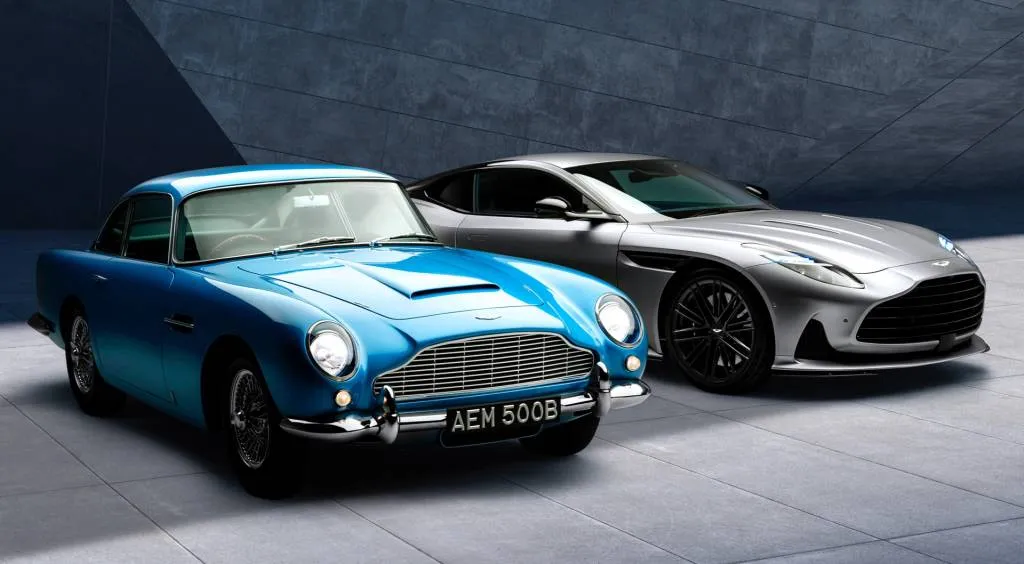It was at the 1963 Frankfurt auto show held in September that year where Aston Martin graced the world with the DB5, a sports car that went on to become an icon, thanks in part to being the preferred ride of a certain spy by the name of James Bond.
The DB5 is the direct successor to the DB4 launched the previous decade, which itself was a hit for Aston Martin though unlike the DB5 isn’t remembered so well.
Although the two generations looked similar, the DB5 featured several design, technical and equipment changes over the DB4, most notably a major engine development delivering even more power. The new 4.0-liter inline-6 made 282 hp, or about 40 horses more than the DB4’s 3.7-liter engine. The top speed was 150 mph, making it one of the fastest four-seaters of its time.
There were also the subtle changes to the body that helped improve the allure of the DB5, crafted by Italian coachbuilder Carrozzeria Touring Superleggera. Aston Martin initially offered the coupe and later a convertible, and even a handful of shooting brake examples were commissioned.
1963 Aston Martin DB5
Production of the DB5 ran for just two years at Aston Martin’s previous Newport Pagnell factory, after which Aston Martin replaced the car with the DB6.
In all, a mere 887 coupes, 123 convertibles, and 12 shooting brakes were built. Even by the standards of the day, the numbers were tiny, especially considering total U.K. car production in 1963 alone was more than 1.8 million units, according to Aston Martin.

1963 Aston Martin DB5 and 2024 Aston Martin DB12
Today, Aston Martin’s DB line of sports cars, the name formed from the initials of early Aston Martin backer David Brown, is represented by the DB12 which is new for the 2024 model year. Like the DB5, it too represents a major update of its predecessor.
“The David Brown era gave us so many great Aston Martin sports cars but none more recognisable, revered, and desired as the DB5, which laid the foundations of our identity as a British luxury brand synonymous with style, performance, and exclusivity,” Lawrence Stroll, Aston Martin’s chairman, said in a statement. “It is only right that, as it turns 60, we take a moment to look back and reflect on this car’s incredible role in our storied 110-year heritage.”
Credit: Source link
